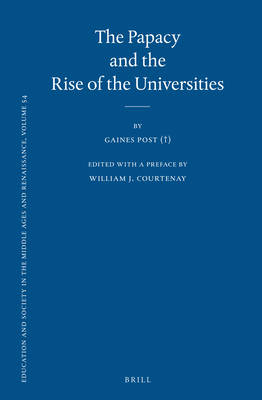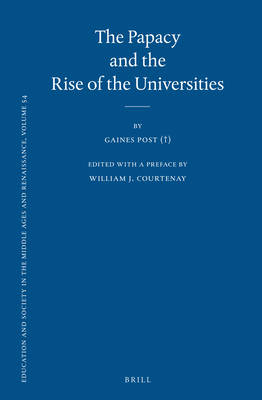
- Afhalen na 1 uur in een winkel met voorraad
- Gratis thuislevering in België vanaf € 30
- Ruim aanbod met 7 miljoen producten
- Afhalen na 1 uur in een winkel met voorraad
- Gratis thuislevering in België vanaf € 30
- Ruim aanbod met 7 miljoen producten
Zoeken
Omschrijving
One of the leading historians of medieval universities in the last generation, Gaines Post published less than a quarter of his 1931 dissertation on the role of the papacy in the rise of universities. The entire work merits publication, both because of the remaining content and because it reveals more on how Gaines Post, a product of Charles Homer Haskins' seminar at Harvard in the late 1920s, approached his subject. The volume covers the interaction of the papacy with multiple universities from the twelfth and thirteenth centuries and opens up a much broader range of topics, considering papal intervention and influence in the areas of licensing to teach, financial support for masters and students, dispensations for study, regulation of housing rents, and the founding of colleges.
See inside the book.
See inside the book.
Specificaties
Betrokkenen
- Auteur(s):
- Uitgeverij:
Inhoud
- Aantal bladzijden:
- 276
- Taal:
- Engels
- Reeks:
- Reeksnummer:
- nr. 54
Eigenschappen
- Productcode (EAN):
- 9789004347267
- Verschijningsdatum:
- 6/09/2017
- Uitvoering:
- Hardcover
- Formaat:
- Genaaid
- Afmetingen:
- 160 mm x 236 mm
- Gewicht:
- 521 g

Alleen bij Standaard Boekhandel
+ 412 punten op je klantenkaart van Standaard Boekhandel
Beoordelingen
We publiceren alleen reviews die voldoen aan de voorwaarden voor reviews. Bekijk onze voorwaarden voor reviews.








